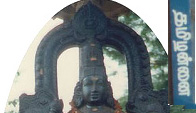
 |
||
| Home Culture Lessons > I 1 2 3 4 5 6 II 1 2 3 4 5 6 III 1 2 3 4 5 6 IV 1 2 3 4 5 6 V 1 2 3 4 5 6 VI 1 2 3 4 5 6 Select Unit | ||
|
| ||
Verbs of bodily action and their cultural connotationsIn Tamil, certain physical actions, and the verbs that denote them, are traditionally attached to some cultural meaning. Such relationships don't usually have any clear explanation, but are just believed because of tradition. But, Tamils take such connotations very seriously. புறையேறு 'choke' When someone chokes while drinking water, it is believed that that person is being scolded by someone else at a distant place. யாரோ உங்களெ திட்டுறாங்க. அதான் உங்களுக்குப் பொறெயேறுது 'Someone is scolding you, that is the reason why you are choking. (Note how the subject of புறையேறு is put in the dative and the verb takes the neuter PNG). விக்கல் எடு 'hiccup': It is believed that when someone is hiccuping, someone in a distant place is thinking of them. Unlike choking, the other person is on good terms with this person. யாரோ உங்களெ நெனெக்கிறாங்க. அதான் உங்களுக்கு விக்கல் வந்திருக்கு. 'Somebody is thinking about you, so you are getting hiccups. தும்மு 'sneeze': Sneezing is considered a bad omen. It is not acceptable to sneeze when someone is about to start something: leaving the home, giving money to someone, starting to write a letter to someone etc. It's really bad when someone sneezes during the marriage. This is also one of the reasons why the drumming is done in marriage ceremonies. மொதல் மொதலா ஒரு வேலைக்குப் போகலாம்ணு கெளம்புனேன். இவன் தும்மிட்டான். போற காரியம் என்ன ஆகுமோ தெரியலெ. 'I just started to set out to join a new job. He sneezed it. I don't know what's going to happen to my job.' கல்யாண வீட்டுலெ தும்மி கிம்மி வைக்காதெ! 'Don't you ever sneeze on the occasion of someone's marriage.' வயிற்று வலி 'stomach ache': If someone eats in front of someone without sharing it, it is said that that person would get stomach pain. எல்லாரையும் பாக்க வச்சி நீ மட்டும் சாப்பிட்டா உனக்கு வயித்து வலி வரும். 'if you eat in front of everybody, without sharing it, you will get stomach pain'. தலை வலி 'head ache': When someone is bothering too much, it would be said that that person is giving too much head ache. நீ சரியான தலைவலிடா. எப்ப பாத்தாலும் தொண தொணண்ணு அதெக் கொடு இதெக் கொடுண்ணு கேட்டுக்கிட்டே இருப்பே 'You are such a head ache. You always ask me to give you this or that.' குமட்டு 'feel like throwing' அந்த ஆளு மூஞ்சியைப் பாத்தாலே எனக்குக் கொமட்டிக்கிட்டுத்தான் வருது. 'As soon as I see his face, I feel like throwing'. மூக்கெப் புடிச்சிக்கிட்டு 'holding your breath': This expression, which is relatively different from the others above, is used in a number of different contexts. When eating some food which is not so good tasting, or medicine, one might say that it should be taken holding the breath; it is also used when trying to do some difficult work. மூக்கெப் பிடிச்சிக்கிட்டு இந்தச் சாப்பாட்டெ சாப்பிடு. 'Take this medicine holding your breath. மூக்கெப் பிடிச்சிக்கிட்டு இந்த மூட்டெயெத் தூக்கூங்க. 'Lift this bag holding your breath.' When someone eats a lot, the phrase மூக்கு முட்ட சாப்பிடு 'eat up to the nose' is used. சாப்பாடு ரொம்ப நல்லா இருந்துது. மூக்கு முட்டச் சாப்பிட்டுட்டேன். 'The food is so great. I ate up to my nose.' பாக்கச் சகிக்கலெ 'not very pleasant to see' (written பார்க்கச் சகிக்கவில்லை): If someone or something is not very pleasant or not liked, this phrase can be used to denote the sight of that person or thing. தலையிலெ டையை அடிச்சிருக்கான். பாக்க சகிக்கலெ. 'He dyed his hair. It's very unpeasant to see'. (lit. dyed on his head!) |
|
© South Asia Language Resource Center (SALRC) |